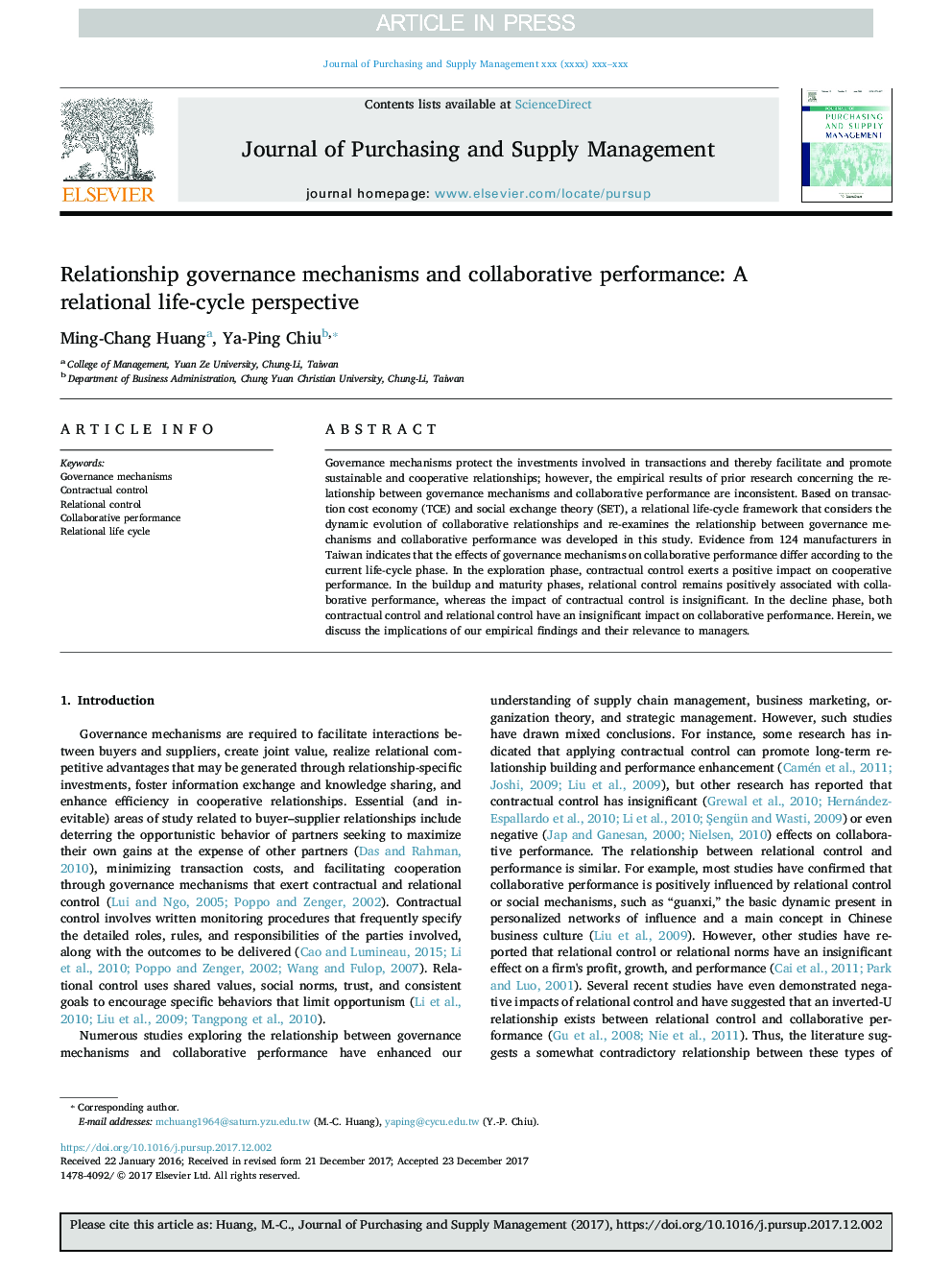| Article ID | Journal | Published Year | Pages | File Type |
|---|---|---|---|---|
| 7426684 | Journal of Purchasing and Supply Management | 2018 | 14 Pages |
Abstract
Governance mechanisms protect the investments involved in transactions and thereby facilitate and promote sustainable and cooperative relationships; however, the empirical results of prior research concerning the relationship between governance mechanisms and collaborative performance are inconsistent. Based on transaction cost economy (TCE) and social exchange theory (SET), a relational life-cycle framework that considers the dynamic evolution of collaborative relationships and re-examines the relationship between governance mechanisms and collaborative performance was developed in this study. Evidence from 124 manufacturers in Taiwan indicates that the effects of governance mechanisms on collaborative performance differ according to the current life-cycle phase. In the exploration phase, contractual control exerts a positive impact on cooperative performance. In the buildup and maturity phases, relational control remains positively associated with collaborative performance, whereas the impact of contractual control is insignificant. In the decline phase, both contractual control and relational control have an insignificant impact on collaborative performance. Herein, we discuss the implications of our empirical findings and their relevance to managers.
Keywords
Related Topics
Social Sciences and Humanities
Business, Management and Accounting
Business and International Management
Authors
Ming-Chang Huang, Ya-Ping Chiu,
